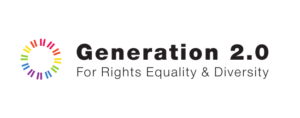Report to the Greek Ombudsman regarding the discrimination against children and young people in archaeological sites and museums
The organizations Generation 2.0 for Rights, Equality & Diversity and the Network for Children’s Rights, have requested the intervention of Τhe Greek Ombudsman in the form of an official complaint in reference to the discrimination against children and young people between the ages of 6 and 25 on the grounds of nationality upon entry into organized archaeological sites, historical sites, monuments and museums in Greece.
A viral post on social media brought this issue to our attention. In particular, the discrimination concerns the Joint Ministerial Decision of the Ministers of Culture and Sport and Finance (dated 27.6.2019 and Government Gazette B ‘2666/1.7.2019) and its subsequent amendment (dated 31.10.2019 and Government Gazette B’ 3976/31.10.2019). According to these decisions, children and young people aged 6 to 25 from countries outside the European Union will pay a reduced fee for individual tickets, approximately 50% of the regular fee for entry into the aforementioned venues (Article 2 par. 1 point a), while children and young people up to 25 years of age from EE Member States who are fully exempt from paying the entrance fee (Article 3 par. 2 point a). In both cases, confirmation of age and nationality is done by providing the passport (in the first case), and the police ID or passport (in the second case).
This provision clearly goes against the principle of equal treatment as it explicitly applies to all persons in the public and private sectors irrespective, inter alia, of national or ethnic origin. This case in particular can be referenced to “access to and supply of goods and services which are publicly available” (Article 3 par.3 point d).
In addition, this provision also goes against the provisions on equal treatment of the underage third country nationals of the Immigration and Social Inclusion Code (Article 21 par. 7 of Law 4251/2014). Finally, it is in complete violation of the principle of equal treatment and discrimination in accordance with the (UN) Convention on the Rights of the Child (Law 2101/1992), specifically Article 2 concerning the obligations of EU Member States with regard to respecting the rights of children without discrimination as well as Article 28 par. 1 which foresees the “right of the child to education and, in particular, to the exercise of this right in a progressive manner based on equal opportunities”.
One of the areas that will be directly affected by the implementation of this legislation is education. Specifically, in the schools, as part of their planned visits to the above areas, children and young students will be separated upon entry, according to their nationality, whereby some will be required to pay. Teachers, on the other hand will be required to actively contribute to this discrimination of students as, in practice, and in order to plan such a visit, they are required to submit a list of participating students indicating their identity as either citizens of EU Member States or not. In addition, the fact that for the same school visit some students have to pay while others do not, can create a discriminatory environment between the students themselves.
Such policies lead to the further propagation of a culture of discrimination. Because, as we know very well, on such a school trip, the children of non-European immigrants (international protection applicants and international protection beneficiaries are exempt) will be targeted.
This case is a clear example of institutional racism. Meaning, when organizations, institutions or governments, through laws, decrees, regulations, rules and modes of operation discriminate, either directly or indirectly, against certain groups of people leading to their marginalization and exclusion. In this case, once again, the Greek legislator is the perpetrator.


*Photo by Paris Tavitian

 Ελληνικά
Ελληνικά

